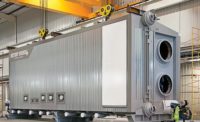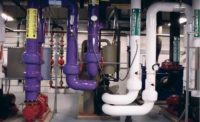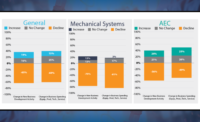It is a commonly accepted best business practice that in order to be a long-term, vibrant business, 25% or more of revenue each fiscal year needs to be derived from new products or services. New revenue streams derived from an expanded product suite are paramount to achieving this desirable position. Many companies fall short of the desired 25% because it’s hard; yet, it’s vitally important to a company’s ecosystem. Product and service diversification continues to be an important element in Victory Energy’s success; however, it hasn’t always been easy. The hard work has paid off in the form of new revenue streams that are serving to accelerate the future of the company. It starts with a commitment to being totally customer-centric. The majority of the ideas for new products come directly out of meeting customers’ needs with unique solutions that aren’t “standard” product offerings.
Engineered to Order Business Unit — a True Game Changer
Today, customers are increasingly looking for more than just a “steam” solution. They’re looking to tap into a company’s engineering acumen by leveraging it in areas that include hot water, waste heat, waste heat ducts, and condensing economizers. This is why Victory formalized its Engineered to Order business unit, which allows the company to offer broader solutions beyond just steam. Every new product comes directly out of collaboration with customers on innovative solutions. Installed base customers who operate Victory’s equipment connect with the company to tap into its in-house thermal engineering talent.
In essence, Victory Energy’s Engineered to Order team acts as an augmentation of a customer’s engineering team. There is no substitute for the true voice of a customer’s understanding. Many of today’s standard products, such as Victory Energy’s GENESIS High Temp Hot Water Generators, were born out of direct customer requests for an improved, more sustainable product to meet increased requirements for environmentally sound, campuswide heating.
The design of products, like the GENESIS, was the result of extensive work with engineering teams from various universities across the country. There are a multitude of design elements in GENESIS that were incorporated into the product as a result of recommendations made directly by end-users.
Vertical Industry Alignment – Bio-Renewables
Ever since the inception of the business, Victory Energy has held a strong ethanol industry position by delivering innovative steam solutions to the sector. In the ethanol business, more steam directly equates to more yield. This platform has grown over time with more and more ethanol plants using the company’s industrial and firetube boilers. Victory Energy is manufacturing a variety of dryer products based on the in-depth expertise that’s been gained from more than two decades of working hand in hand with ethanol engineering and boiler room influences. Understanding what works and what doesn’t in the actual ethanol production world is vital to success. This broader position that involves non-steam applications is increasingly driving future product development at Victory Energy and throughout the industry. The best practice learning from the ethanol industry is being transitioned to other processing industries, such as food and beverage, chemical, and pulp and paper. This industry-to-industry transfer of learning fuels tremendous growth.
Drive for Greater Vertical Integration – Burner Business
Many product innovations are viewed as natural product extensions for a business. One of Victory Energy’s key points of difference is its vertical integration capability. For years, and even decades, burner and boiler products were viewed as separate and distinct product categories. Despite the natural collaboration that happens between boiler and burner-branded entities, users asked for a closer connection that comes from dealing with only one manufacturer. This identified market need was the impetus behind the comprehensive product launch of the VISION line of burners. The ability to factor in performance metrics between boilers and burners informed much of the product development efforts for VISION. This includes insights gained on burner retrofit project applications. The ability to have a boiler/burner package from one manufacturer is more and more viewed as a compelling proposition as customers cut the number of suppliers with whom they actively do business.
Product Line Extensions – Where it Makes Sense
Product line extensions are often the quickest and most efficient way to realize increased revenue from new products. There is also a downside risk of extending the line too far. It’s a delicate balancing act. The boiler industry is steeped with companies that have long histories. There are many barriers to entry in many niche product categories. Victory Energy has faced the decision of whether to enter a market segment throughout the course of its history. The company has always trusted its gut. This requires closely following what customers are asking to help validate the decision. Five years ago, there were direct customer requests for Victory Energy to enter the firetube market with full-line availability. At the time, the company was extremely well known in the segment for manufacturing large complex firetube boilers — from 800-2,500 HP. There was equity for this important niche competency; however, the company wasn’t necessarily viewed as a full-line firetube boiler provider. The decision was made to go all in. Today, firetubes account for an increasingly larger percentage of overall sales. It would have been easy to stick to the company’s limited firetube niche. Victory Energy’s business position wouldn’t be where it is today without a comprehensive product line. The company is doubling down now by further enhancing the line by offering vertical boilers, closely followed by the launch of hot water units. Again, the market “ask” is the determining factor. Knowing customers’ wants and needs is paramount as product lines can be expanded only so far.
Growing a Robust Aftermarket Service Business – for the Life of the Boiler
From a product development standpoint, customer closeness is paramount today and, in many cases, far more important than in the past. Victory Energy’s aftermarket strategy is to stay with customers for the life of the boiler. As tenured boiler room professionals retire, and companies cut back on resources dedicated to the boiler room, they are increasingly turning to manufacturers for support. Service programs need to be tailored to fit unique customer requirements. Spare parts programs need to be robust. Being a true partner with customers leads to a far better understanding of the realities of their operations. Ideas for new products are born out of ongoing dialogue. Product enhancement and new concepts are easily and quickly vetted. These relationships with customers serve as real-life product development incubation settings.
Voice of the Customer- the Vital Element to Product Diversity
The key to establishing a robust product development program is actively listening to customers. It’s not about what can be easily manufactured; it’s all about listening to what customers want and need. In-depth conversations allow manufacturers to better understand how elastic a product line offering truly is. The best companies are those that have products that are market-validated through ongoing customer input and evaluation. Always have the voice of the customer as an active participant in any new product development — successful companies are always glad they did.




